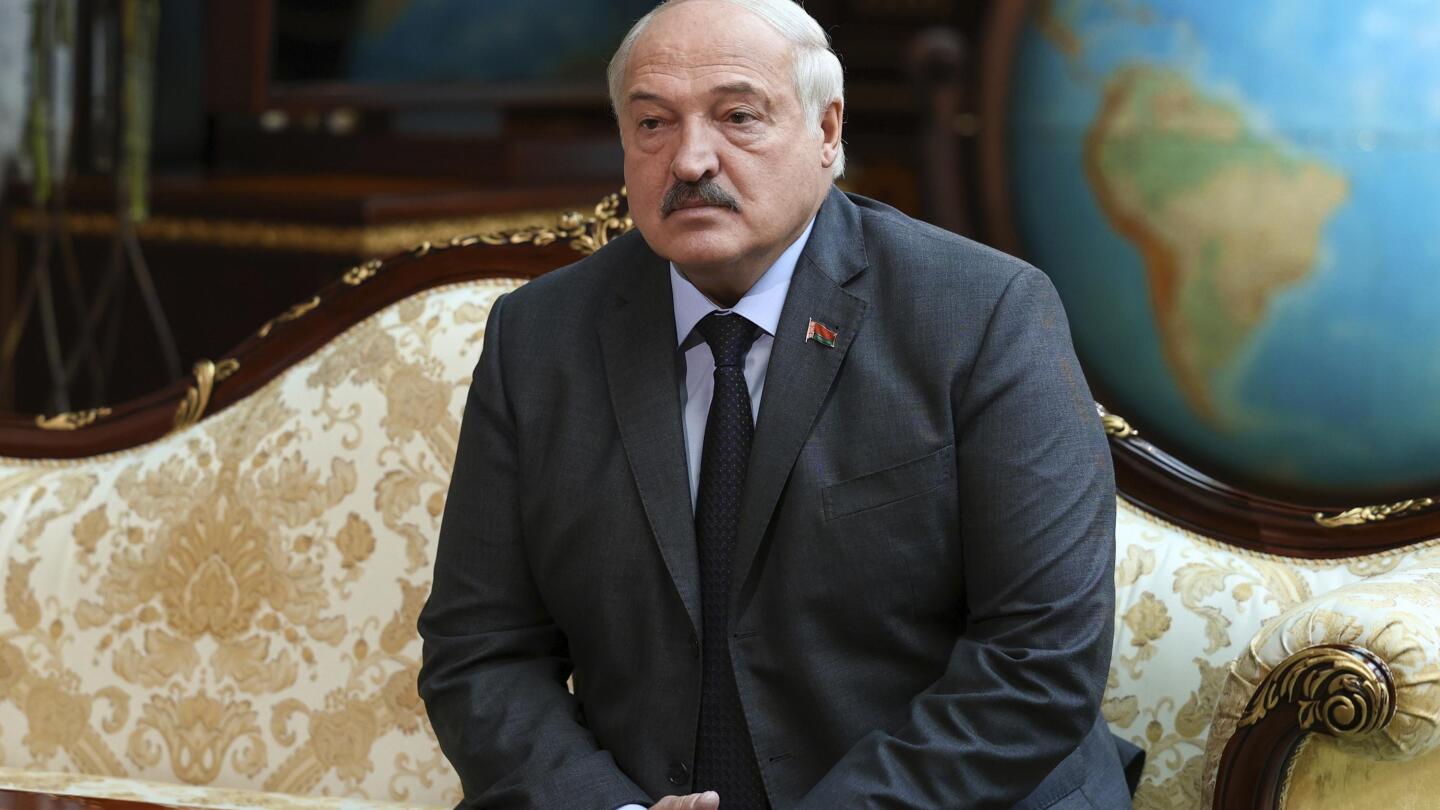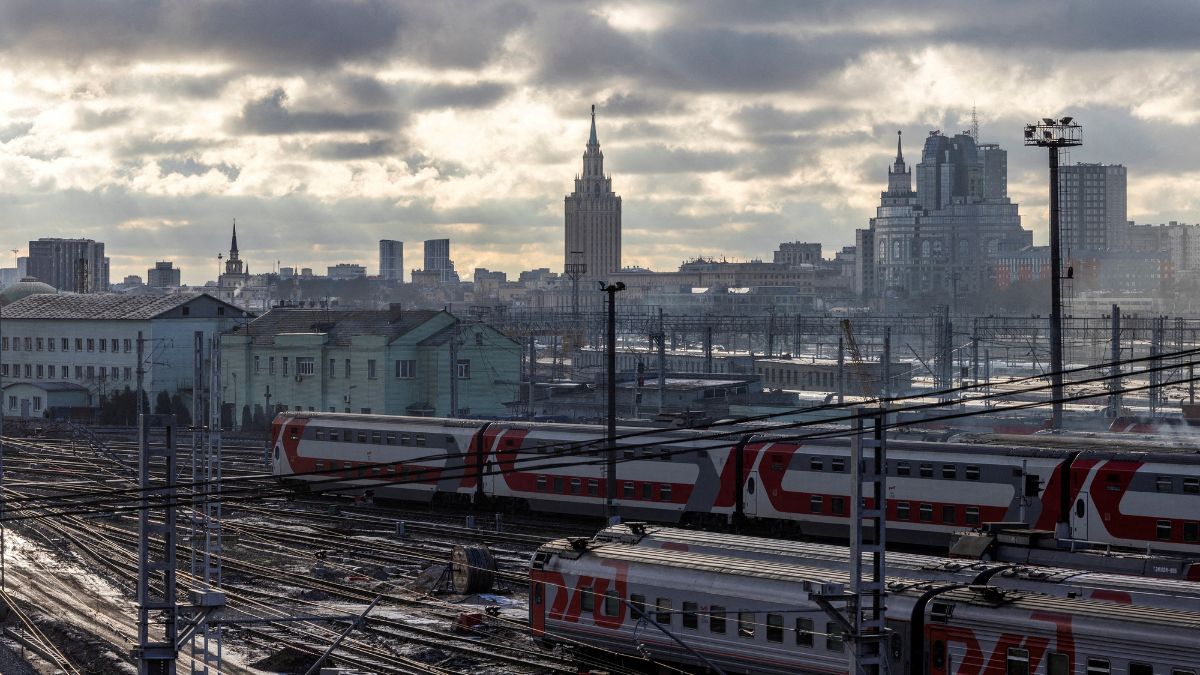
Belarusians fleeing repression at home say they face new threats and intimidation abroad
The IndependentFor free real time breaking news alerts sent straight to your inbox sign up to our breaking news emails Sign up to our free breaking news emails Sign up to our free breaking news emails SIGN UP I would like to be emailed about offers, events and updates from The Independent. Dziana Maiseyenka, 28, was detained without warning while crossing the border from Armenia to Georgia, where she had taken refuge from Belarus a year ago to escape what she called “the nightmare at home.” Authorities in Minsk, she was told, had issued an international arrest warrant against her on charges of “organizing mass unrest.” She knows what a return to Belarus will mean: Her father was imprisoned for nearly three years on similar charges. In a letter to the Belarusian opposition office, she said Serbian authorities were told Hniot’s case “was politically motivated” and he “would face reprisals” if returned to his homeland. “Belarusians need European solidarity not in words but in deeds," said Zmitser Vaserman, who represents a Belarusian exile group in Sweden, urging a "European moratorium on the deportation of Belarusian citizens who are persecuted for political reasons.” To protect the interests of Belarusians abroad, the opposition has created “people’s embassies” in 24 countries, including in EU member states, the U.K., Canada, Australia and Brazil. Of particular concern are children born abroad to parents who cannot return to Belarus to get documents confirming their citizenship, said Anaïs Marin, the U.N. special rapporteur on human rights in Belarus, because "this may lead to loss of proof of citizenship and, potentially, to statelessness.” Many Belarusians returning home have been arrested at the border, said Tsikhanouskaya.
History of this topic
Belarusian authorities arrest 7 journalists who worked for an independent newspaper
Associated Press
Belarusian authorities arrest 7 journalists who worked for an independent newspaper
The IndependentBelarus court jails journalist for four years for criticizing authoritarian president
Associated PressBelarus grants asylum to fugitive Polish judge wanted on spying allegations
Associated Press
Belarus grants asylum to fugitive Polish judge wanted on spying allegations
The IndependentBelarus has arrested scores of relatives of dissidents ahead of presidential vote, activists say
Associated Press)
Belarus's Lukashenko pardons 31 people convicted over 'extremism'
FirstpostBelarusian authorities launch a new wave of repression ahead of presidential vote
Associated Press
Belarusian-American has his prison sentence extended amid continuous crackdown on dissent in Belarus
The Independent
Lithuania refers Belarus to the ICC, alleging crimes against humanity over opposition crackdown
Hindustan Times
Lithuania refers Belarus to the ICC, alleging crimes against humanity over opposition crackdown
The Independent
Teachers in Belarus being targeted for links with 'extremist' group, says human rights body
Hindustan TimesSerbian appeals court overturns ruling to extradite to Belarus a critic of its authoritarian regime
Associated PressBelarusians fleeing repression at home say they face new threats and intimidation abroad
Associated Press
Artists urge Serbia not to extradite to Belarus a critic of its authoritarian regime
Associated PressEU slaps sanctions on 28 accused of rights abuses and links to the ongoing crackdown in Belarus
Associated Press2 Belarusian journalists sentenced to prison in a closed-door trial, rights group says
Associated Press
Belarus frees head of banned party as Lukashenko slowly releases some political prisoners
Associated PressBelarus broadens visa-free travel for 35 European countries
Associated Press
Belarus, in move to ‘openness,’ broadens visa-free travel for 35 European countries
LA TimesBelarusian authorities are forcing political prisoners to publicly repent to be freed, activists say
Associated Press
Belarusian authorities are forcing political prisoners to publicly repent to be freed, activists say
The Independent
Serbian court rules to extradite to Belarus a critic of its authoritarian regime
Associated Press
UN calls on Belarus to investigate torture and death of politicial prisoners
Associated PressBelarus starts proceedings in a trial in absentia of 20 prominent political analysts
Associated Press
Belarus authorities unleash another wave of raids and property seizures targeting over 200 activists
Associated PressBelarus targets opposition activists with raids and property seizures
Associated PressBelarusian authorities confirm raids against opposition activists over new ‘people’s embassies’
Associated PressThousands of Belarusians convicted on politically driven charges in sweeping crackdown on dissent
Associated Press
Belarusian journalist goes on trial for covering protests, faces up to 6 years in prison
Associated PressMore Ukrainian children from Ukraine’s Russia-held regions arrive in Belarus despite global outrage
Associated Press
Rights group says security services in Belarus raid apartments and detain election observers
Associated Press
2 journalists are detained in Belarus as part of a crackdown on dissent
The IndependentActivist hands ICC evidence he says implicates Belarus president in transfer of Ukrainian children
Associated PressBelarus bans citizens from renewing passports abroad, spreading fear among those who fled repression
Associated Press
Belarus hands lengthy prison terms to 18 participants of 2020 protests
Associated Press
Belarus opposition group urges EU to maintain sanctions on Belarus state companies
Associated Press
10-year sentence asked for journalist forced down in Belarus
Associated Press
US sanctions Belarus’ election officials, president’s plane
Associated Press
UN rights chief decries ‘systematic repression’ in Belarus
Associated Press
Belarus rights group says scores detained in new clampdown
Associated Press
Belarus sentences exiled opposition leader to 15 years
Associated Press
Belarus hands exiled opposition leader 15-year jail sentence
The Independent
Belarus seeks lengthy prison terms for opposition leaders
Associated Press
Poland expels Belarus diplomat in retaliatory move
Associated Press
Belarus lists military unit members among 625 ‘extremists’
Associated Press
Belarus activist gets 25-year sentence for opposing regime
Associated Press
Belarus opposition says fate of country, Ukraine intertwined
Associated Press
Belarus, Ukraine ‘interconnected’; must fight together to safeguard their existence: Sviatlana Tsikhanouskaya
The HinduDiscover Related

















)










)
